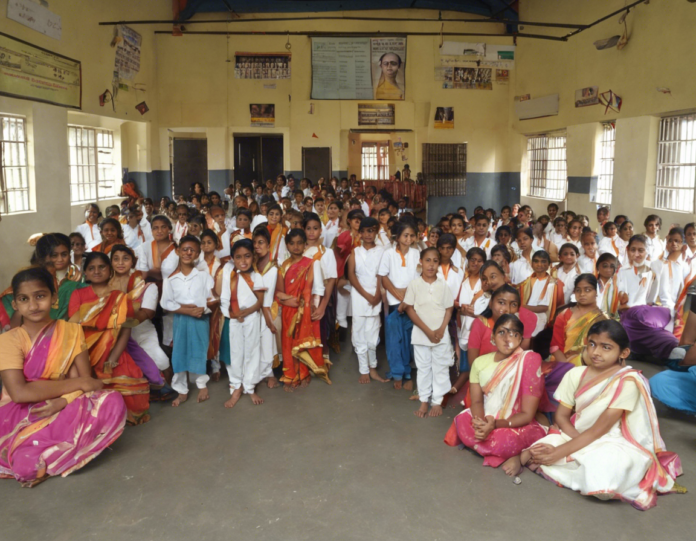Introduction
In India, Kasturba Gandhi Balika Vidyalaya (KGBV) is a scheme launched by the Government of India in 2004 under the Sarva Shiksha Abhiyan initiative to provide quality education for girls from disadvantaged backgrounds. Named after Kasturba Gandhi, wife of Mahatma Gandhi, these residential schools aim to empower girls by providing them with an education and opportunities that were previously inaccessible to them. This blog post delves into the ethos of Kasturba Gandhi Balika Vidyalaya and how it is making a significant impact on the lives of young girls across India.
KGBV Objectives
-
Promoting Girls’ Education: One of the primary objectives of KGBV is to promote education among girls, especially those from marginalized communities. By providing them with quality education, the scheme aims to empower girls and enable them to break the cycle of poverty and discrimination.
-
Improving Gender Parity: KGBV also strives to bridge the gender gap in education by ensuring that girls have equal access to educational opportunities. By creating a supportive environment for girls to learn and grow, the scheme is working towards achieving gender parity in education.
-
Enhancing Life Skills: In addition to academic education, KGBV focuses on imparting life skills to girls. These include critical thinking, problem-solving, communication skills, and self-confidence, which are essential for their personal and professional growth.
-
Empowering Girls: By providing girls with education and life skills, KGBV is empowering them to make informed choices, pursue their aspirations, and become agents of change in their communities. This empowerment is at the core of the ethos of KGBV.
Components of KGBV
-
Residential Schools: KGBV schools are residential in nature, providing girls with a safe and conducive environment for learning. By living on campus, girls have access to facilities such as accommodation, food, and healthcare, ensuring that their basic needs are met.
-
Quality Education: KGBV schools focus on delivering quality education to girls, with an emphasis on improving learning outcomes. Well-qualified teachers, innovative teaching methods, and a supportive learning environment contribute to the overall academic development of students.
-
Vocational Training: To equip girls with practical skills for employment and entrepreneurship, KGBV schools offer vocational training programs. These programs cover a range of skills such as stitching, handicrafts, computer literacy, and agricultural practices, enabling girls to explore diverse career opportunities.
-
Health and Hygiene: KGBV places importance on the health and hygiene of girls, providing regular health check-ups, counseling sessions, and awareness programs on personal hygiene and sanitation. By prioritizing girls’ well-being, KGBV ensures that they lead healthy and fulfilling lives.
-
Community Engagement: KGBV actively engages with the community to create awareness about the importance of girls’ education. Through outreach programs, parent-teacher meetings, and community events, KGBV strives to garner support for girls’ education and encourage greater participation from stakeholders.
Impact of KGBV
-
Increased Enrollment: KGBV has contributed to a significant increase in the enrollment of girls from marginalized communities in schools. By providing a platform for girls to access education, many who were previously out of the school system are now attending KGBV schools.
-
Improved Learning Outcomes: The focus on quality education and holistic development has resulted in improved learning outcomes among KGBV students. Girls are gaining academic proficiency, confidence, and critical thinking skills that are essential for their future success.
-
Empowerment of Girls: Through education and life skills training, KGBV is empowering girls to become independent and confident individuals. Many KGBV alumni have gone on to pursue higher education, secure employment, and become leaders in their communities.
-
Changing Mindsets: KGBV is not just transforming the lives of girls but also changing societal mindsets regarding girls’ education. By showcasing the potential and capabilities of girls, KGBV is challenging stereotypes and advocating for gender equality in education.
Challenges and the Way Forward
While KGBV has made significant strides in empowering girls, several challenges persist. These include limited resources, infrastructure constraints, societal norms, and cultural barriers. To address these challenges and further enhance the impact of KGBV, continuous efforts are required in the following areas:
-
Resource Allocation: Ensuring adequate resources for KGBV schools is essential to maintain quality education, infrastructure, and student support services. Increased funding and budget allocations can help address resource constraints.
-
Capacity Building: Continuous training and capacity building for teachers and staff are crucial to enhancing the quality of education and support services provided by KGBV schools. Professional development programs can equip educators with the necessary skills and knowledge to meet the diverse needs of students.
-
Community Engagement: Stronger partnerships with the community, local authorities, NGOs, and other stakeholders can amplify the impact of KGBV. By fostering collaborative relationships, KGBV can garner greater support, resources, and advocacy for girls’ education.
-
Monitoring and Evaluation: Robust monitoring and evaluation mechanisms are necessary to assess the effectiveness of KGBV programs, identify areas for improvement, and track the progress of students. Regular assessments and feedback loops can help optimize the delivery of education and support services.
-
Sustainable Practices: Promoting sustainability practices within KGBV schools, such as eco-friendly initiatives, resource conservation, and community outreach programs, can instill a sense of environmental responsibility and social consciousness among students.
Frequently Asked Questions (FAQs)
- Who is eligible to enroll in Kasturba Gandhi Balika Vidyalaya (KGBV) schools?
-
Girls from disadvantaged backgrounds, including SC, ST, OBC, minority communities, and girls with disabilities, are eligible to enroll in KGBV schools.
-
Are KGBV schools only for residential students?
-
Yes, KGBV schools are primarily residential in nature, providing accommodation, food, and other facilities to girls.
-
What subjects are taught at KGBV schools?
-
KGBV schools offer a curriculum that includes core subjects such as Mathematics, Science, Social Studies, Languages, as well as vocational training programs.
-
How can I support KGBV initiatives as a concerned citizen?
-
You can support KGBV initiatives by raising awareness about the importance of girls’ education, volunteering at KGBV schools, donating educational resources, or collaborating with local NGOs working in this field.
-
What are the long-term benefits of KGBV education for girls?
-
The long-term benefits of KGBV education for girls include improved literacy rates, enhanced employability, increased confidence and independence, and the potential for leadership roles within their communities.
-
How does KGBV address barriers to girls’ education, such as early marriage and gender discrimination?
-
KGBV addresses barriers to girls’ education by providing a safe and supportive learning environment, life skills training, awareness programs on gender equality, and community engagement activities to challenge harmful practices.
-
What role do parents play in supporting girls attending KGBV schools?
-
Parents play a critical role in supporting girls attending KGBV schools by encouraging their education, participating in school activities, attending parent-teacher meetings, and advocating for girls’ rights within the community.
-
How does KGBV promote girls’ overall development beyond academics?
-
KGBV promotes girls’ overall development by offering extracurricular activities, vocational training, health and hygiene education, leadership opportunities, and life skills training to equip them with practical skills for personal and professional growth.
-
Are there any success stories from KGBV alumni who have made a significant impact?
-
Yes, there are numerous success stories of KGBV alumni who have excelled in various fields, including education, entrepreneurship, social work, and public service, serving as inspirations for current students and advocates for girls’ education.
-
How can policymakers and stakeholders further support the expansion and sustainability of KGBV initiatives?
- Policymakers and stakeholders can support the expansion and sustainability of KGBV initiatives through increased funding, policy advocacy for girls’ education, capacity building for teachers and staff, research and monitoring mechanisms, and fostering partnerships with key stakeholders.
In conclusion, Kasturba Gandhi Balika Vidyalaya (KGBV) exemplifies a transformative approach to empowering girls through education, skill development, and community engagement. By upholding the ethos of girls’ empowerment and equality, KGBV is not only shaping the lives of individual students but also catalyzing positive changes in society at large. Through continued support, innovation, and collaboration, KGBV can further amplify its impact and create a brighter future for girls across India.






